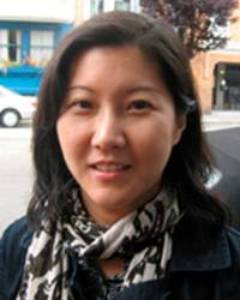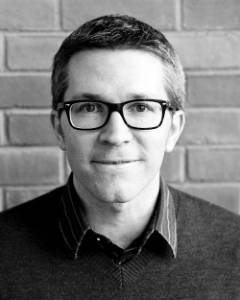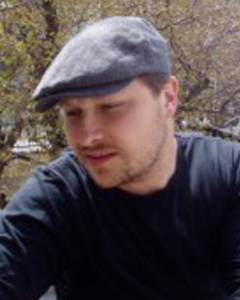Pandemic!
AAAS 180P and 280Q
Sonja Kim
This course introduces students to a comparative history of medicine and public health, with a focus on the experiences of, and efforts to address, disease and debility in Asia and the Americas. While COVID-19 is a novel virus with an unprecedented global spread, our responses to the virus as a public health concern reflect over two hundred years of global public health thinking. Key ideas like quarantines, vaccines, high-risk populations, health inequities, and governmental involvement in public health have long histories that shape our present. This course proposes that one of the best ways to understand our present is through a better understanding of this past.
In the fall, we begin with conceptual definitions and emerging global public health practices at the turn of the twentieth century. Students will examine a variety of sources and use digital storytelling methods as they explore diseases as biological processes, lived human experiences, and social phenomena, connected to broader political, intellectual, and material changes on local, regional, and global scales. In the spring, they will research a global public health topic of their choice and submit a portfolio that includes dissemination of their findings through appropriate outlets. Students will also have the opportunity to turn their research into a publication or other media such as an exhibit, podcast, or mini-documentary.
This course will be of particular interest to students considering a major in History, Anthropology, Political Science, Sociology, Global Public Health, Asian and Asian American Studies, or Women, Gender, and Sexuality Studies, or a future profession in public health, human rights, medicine, nursing, or related field.
The annual sequence will fulfill Harpur Writing (W), Composition (C), Oral Communication (O), Social Science (N), and Global Interdependencies (G) general education requirements. It may also be applied toward requirements of the History of Science, Technology, and Medicine minor.
Sonja M. Kim is Associate Professor of Asian and Asian American Studies with a courtesy title in the Department of History. The author of Imperatives of Care: Women and Medicine in Colonial Korea (2019) and co-editor of Future Yet to Come: Sociotechnical Imaginaries in Modern Korea (2021), she holds research and teaching interests on gender, health, and welfare in Asia and its diasporic communities.

Disinformation and Naiveté
RUSS 180 and 280B
Sidney Dement
A significant lack of knowledge about the culture and history of other nations plays a pivotal role in many different areas of our lives: the news, film, literature, tourism, pedagogy, international relations, arms proliferation, NATO expansion, disinformation, approaches to medical practice, and internet policy. This course will model an approach to studying international issues through intensive methodological and contextual analysis of Russian projections of disinformation and naiveté. In this two-course series, students develop and practice research skills to conceptualize how gaps in knowledge shape disciplinary discourses while also searching for productive and feasible ways to fill those gaps. During the first semester, students discuss and respond to readings about the roles that innocence, ignorance, and naiveté play in discourses about Russia and our world. Coming to grips with how little the average educated person knows about Russia helps the critical thinker develop research questions about how innocence and ignorance shape public discourse and policy. Students gain insight not only into the negative dimensions of what we don’t know, but into the power that naiveté, when observed, can unlock. During the second semester, students design and pursue a research project that grapples with the many-faceted ways in which our world is shaped by innocence and ignorance. Students may continue an avenue of interest they have found in Russian Studies, or they may transfer their experience of our study of Russia to a different culture or set of cultures. Over the course of this second semester, students will workshop, research, and complete projects that operationalize concepts of innocence and naiveté to test the boundaries of what we know.
Students will have the opportunity to collaborate with Professor Dement on the approach taken in this course in an article about what it means to turn the thing that seems like a weakness—lack of knowledge of a topic—into a strength. How can we as researchers recognize how much we don’t know in a way that empowers us to find compelling answers to incisive questions? Students will also have the opportunity to publish their research in the Binghamton University Undergraduate Journal or to turn their work into other media, such as a mini-documentary or podcast.
This annual sequence will fulfill Composition (C), Humanities (H), or Oral Communication (O) general education requirements.
Professor Dement has spent the last twenty years studying, researching, or teaching Russian language and culture. The idea for this Source Project stream grows out of Dement's recent book, a cultural history of Russia's first and most important monument to Alexander Pushkin.

History & Capitalism
JUST 180B and 280G
Michael J. Kelly
In this year-long course sequence, students will learn a primary skill, the interpretive analysis of historical, literary or philosophical texts. This skill is fundamental for investigating any subject, including oneself, and, as such, this course is intended to establish a foundation for any major or minor course of study. We will exercise these basic skills by studying capitalism, the core ideology of our lives in America, and much of the world. Many aspects of our lives are dictated or significantly impacted by capitalism. Students will be able to choose case-studies in a specific field of interest to investigate more fully throughout the course.
In the Fall, we will read primary texts reaching back to the Bible and other early religious texts (such as the Mishnah and Talmud), as well as those of the ancient Greeks and Romans and medieval thinkers, before moving into modern thinking on history and into contemporary historical theory. This course will be discussion intensive. Participation will involve presenting ideas and responding to others in the class. In the Spring, we will employ the ideas and methods that we have learned from the Fall in an extended engagement with the theories and histories of capitalism. We will start by reading 18th-19th century authors on capital and economy, working our way into the texts of Karl Marx, Rosa Luxemburg, Naomi Klein, Alenka Zupancic, and Slavoj Zizek.
The Spring will culminate with an international gathering of students and scholars working on projects related to history and capitalism with the series The Spring will culminate with an international gathering of students and scholars working on projects related to history and capitalism with the series “Capitalism’s Past.” Students’ presentations will showcase the research skills gained and how they are applied to specific topics. Students will have the opportunity to publish work in a book series dedicated to the Source Project and other undergraduate and graduate student research as a printed and open-access digital book by Gracchi Books, an imprint of Punctum Books. This annual sequence fulfills Harpur Writing (W), Composition (C), Humanities (H), Global Interdependencies (G), or Oral Communication (O) general education requirements.
Michael J. Kelly is Visiting Assistant Professor in Judaic Studies at Binghamton University (SUNY), General Editor of Gracchi Books, and Director of Networks and Neighbours. His teaching and research focus on the relationship between literature and history, critical theory, and the philosophy of history. His recent publications include Isidore of Seville and the “Liber Iudiciorum”: The Struggle for the Past in the Visigothic Kingdom, The Medieval and Early Modern Iberian World 80 (Boston/Leiden: Brill, forthcoming), Theories of History: History Read Across the Humanities (London: Bloomsbury, 2018) edited with Arthur Rose, and, with Dominique Bauer, The Imagery of Interior Spaces (NY: Punctum Books, 2019). He also is adapting two novels for the stage, with their author, Ariana Harwicz.

Human Rights
HMRT 176 and HMRT 276
Alexandra Moore
These courses take a two-fold approach to human rights research. First, we will discuss the histories and concepts that constitute human rights. Are they best described as legal instruments, social norms, cultural practices, discourses, political ideologies, or institutions? What are some of the historical roots of the so-called “human rights regime”? Is it a fatally flawed set of norms that should be abandoned in our contemporary moment; or, do the recent attacks on those norms by the forces of xenophobia, racism, and other forms of fear and hate demand that we re-double our efforts to promote human rights? To help explore those questions with rigor and insight, we will consider how different academic and professional disciplines approach human rights work and research. We will read texts from History, Philosophy, Political Science, English/Literary Studies, Law, International Relations, Visual Media Studies, and Anthropology, and we will work with Binghamton professors who represent many of those departments. In considering human rights from different perspectives, we will continually ask how different methodologies and research questions shape one another. Because human rights is an inherently interdisciplinary area of study, we will also consider the challenges and rewards that human rights research demands. In the second semester, students will choose to join a current research group in the Human Rights Institute to investigate topics such as incarceration, fascism, indigenous rights, terrorism, women’s rights and more.
The Human Rights course HMRT 176 fulfills the Global Interdependencies (G), Humanities (H), Social Sciences (N), and/or Harpur Writing (W) general education requirements.
Alexandra Moore, professor of English and co-director of the Human Rights Institute, will lead the program. Moore publishes widely in representations of torture, enforced disappearance, incarceration, gendered rights violations, child soldiers, humanitarian interventionism and related topics in contemporary literature and film. She also works with torture survivors and those fleeing political persecution.

The Social Context of Learning
EDUC 111 and 112
Amber Simpson
How do students learn? What are students’ attitudes and beliefs regarding the teaching and learning of a particular discipline? How do educators and parents effect students’ opportunities to learn? How do students’ social identities (e.g., gender, ethnicity, sexual orientation, religion, etc.) affect their learning? How do students become interested in literature and engineering? These are examples of questions that are of interest to educational researchers in a range of disciplines. Likewise, these questions are not limited to any particular age group or educational setting as these questions are of concern in classroom settings, museums, libraries, after-school programs, summer camps, and home environments to name a few. In the first semester, students will be introduced to various research methods common in educational research studies. They will also gain experience in collecting and analyzing data in the form of surveys, observations and video recordings, interviews, photographs, and drawings. At the conclusion of the first semester, students will have designed an initial research project based on a topic of interest and gaps in the current literature base. In the second semester, students will carry out their research study and disseminate findings through an appropriate outlet.
This course can be taken to fulfill the Composition (C) and Oral Communication (O) general education requirements.
Amber Simpson joined the Department of Teaching, Learning, and Educational Leadership in 2017. She received her undergraduate degree in Mathematics, Secondary Education from East Tennessee State University, and her Master's degree in Curriculum and Instruction and Educational Specialist degree in Education Administration and Supervision from Lincoln Memorial University. Simpson spent five years as a high school mathematics teacher in Tennessee before returning to Clemson University to receive her PhD in Curriculum and Instruction, Mathematics Education.

People, Politics, and the Environment
ENVI 105 and 205
Sean Cummings
People live in places and imprint meaning and function on the natural environment. This can be a local, or even individual process, but is also inescapably tied to broader political, economic and cultural dynamics. As people move from place to place for any of life's reasons-whether to go to school, flee natural or political disasters or to seek new economic opportunity -- they are faced with learning about and integrating themselves into new places. How do we learn about a new place? How does our understanding of the places in which we live shape our ability to sustain ourselves and our environment? We will develop our own approach to studying the place you find yourself as a college student--Binghamton--how it came to be settled at the confluence of two rivers, its transition to a set of utopian, industrial communities with factory work that attracted European immigrants, to then become the birthplace of modern computing and aviation. We will consider this trajectory in the current post-industrial phase where flooding linked to global climate change, revitalized downtown areas and out-migration are major concerns.
Through field trips, discussions, and practice of various research methods, the first semester will introduce students to the ways that scholars and people who live and work in Binghamton define environmental issues. Students will have the chance to design their own research projects with faculty who study sustainable communities in the second semester to generate ideas about how to integrate social, environmental and economic needs to better the places in which we live.
This annual sequence can be taken to fulfill the Social Sciences (N), Oral Communication (O), and Composition (C) general education requirements. It can also fulfill the requirements of ENVI 101 and 201 toward a major or minor in environmental studies.